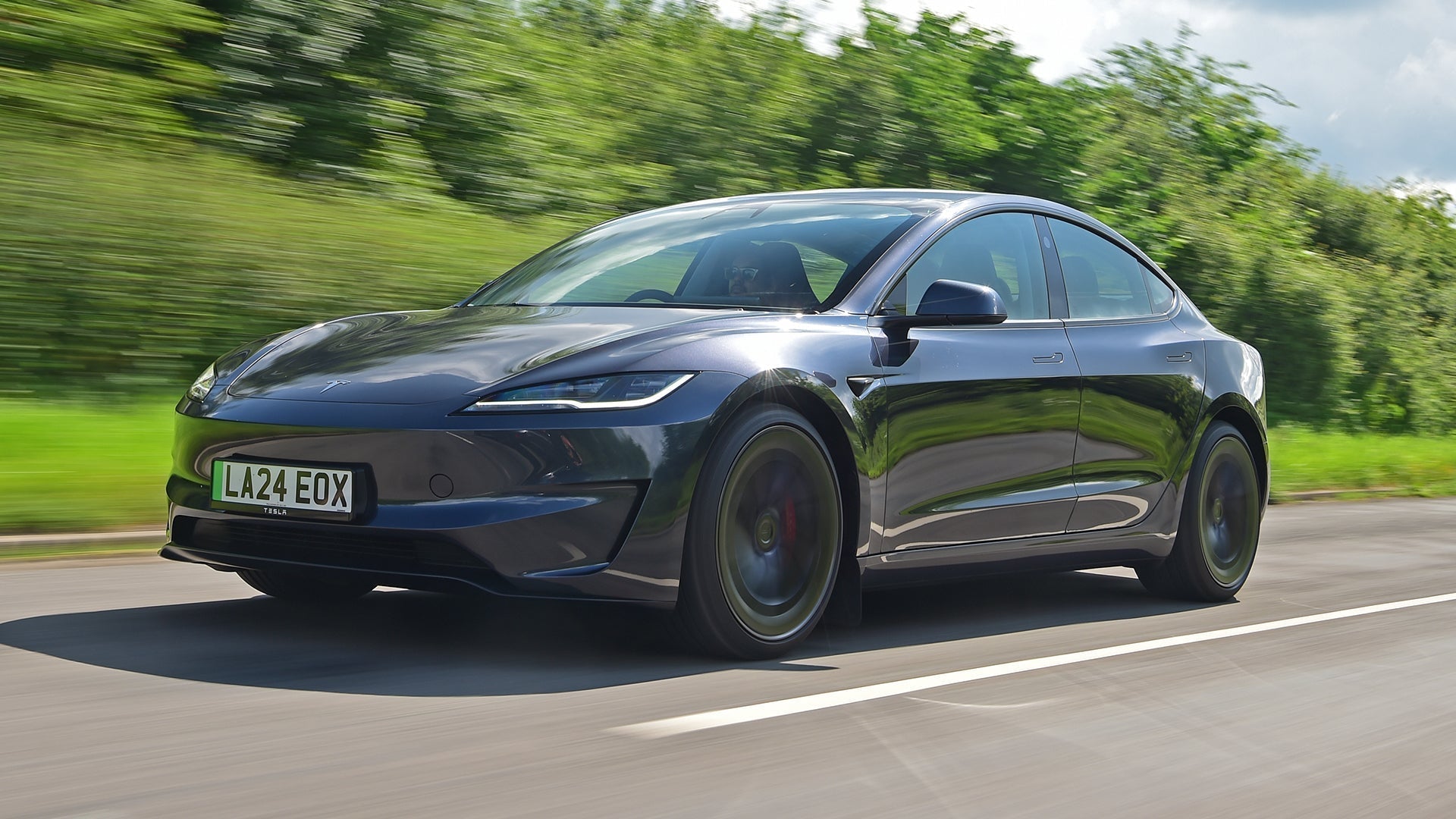Während die Preise für Neuwagen nach wie vor hoch sind und die Lieferketten sich nur schwer erholen, zeichnet sich auf dem US-Automarkt ein überraschender Trend ab : Gebrauchte Elektrofahrzeuge (EVs) werden deutlich erschwinglicher . Tatsächlich sanken die Preise für gebrauchte Elektrofahrzeuge im Mai 2025 im Vergleich zum Vorjahr um fast 3.000 US-Dollar , was sowohl für preisbewusste als auch für umweltbewusste Käufer eine attraktive Gelegenheit darstellt.
Gebrauchte Elektroautos trotzen dem Trend: Preise sinken, andere steigen
Laut einer aktuellen Studie von iSeeCars, in der über 2,4 Millionen Gebrauchtwagenverkäufe analysiert wurden, lag der Durchschnittspreis eines gebrauchten Elektrofahrzeugs im Mai 2025 bei 31.110 US-Dollar , ein Rückgang von 8,8 % gegenüber dem Vorjahr. Im Gegensatz dazu verteuerte sich der Gebrauchtwagenmarkt insgesamt : Er stieg im Durchschnitt um 630 US-Dollar auf 32.317 US-Dollar .
Dieser Preisverfall im Segment der gebrauchten Elektrofahrzeuge fällt besonders auf, da die Lagerbestände an herkömmlichen Gebrauchtwagen weiterhin knapp sind und aufgrund der Produktionslücke zwischen 2020 und 2022 weniger Fahrzeuge verfügbar sind.
📊 Visueller Einblick: Jahresvergleich der Preise nach Fahrzeugtyp
Alternativtext : Balkendiagramm mit den Preisänderungen bei Gebrauchtwagen im Jahresvergleich. Bei Elektrofahrzeugen war der Rückgang mit 8,8 % der größte, während SUVs um 4,3 % zulegten.
Tesla und Porsche dominieren den Preisverfall
Tesla bleibt die dominierende Kraft auf dem Markt für gebrauchte Elektrofahrzeuge – ist aber auch am stärksten von der Wertminderung betroffen:
-
Tesla Model S : Derzeit durchschnittlich 46.503 $ , ein Rückgang um fast 9.000 $ (16 %).
-
Tesla Model Y : 4.945 $ weniger, Durchschnittspreis 29.789 $ .
-
Tesla Model X : Rückgang um 5.292 $ (8,9 %), durchschnittlich 54.004 $ .
-
Kia Niro EV : 6,9 % gesunken, jetzt durchschnittlich 21.316 $ .
-
Porsche Taycan : Verlor unglaubliche 10.998 $ (12,7 %) und liegt jetzt bei 75.644 $ .
Diese Trends deuten darauf hin, dass die hohen Anschaffungspreise und der steigende Bestand an Gebrauchtwagen von Tesla zu einem starken Rückgang des Wiederverkaufswerts beitragen – ein Aspekt, den sowohl Käufer als auch aktuelle Besitzer bei ihren finanziellen Entscheidungen berücksichtigen sollten.
Warum sinkt der Wert von Elektrofahrzeugen schneller?
Elektrofahrzeuge verlieren bekanntermaßen schneller an Wert als ihre benzinbetriebenen Gegenstücke, und zwar aus folgenden Gründen:
-
Schneller technologischer Fortschritt – Neuere Modelle lassen ältere schnell veraltet erscheinen.
-
Steueranreize für neue Elektrofahrzeuge – Reduzieren die Attraktivität wenig genutzter Modelle.
-
Verändertes Verbrauchervertrauen – Frühe Anwender von Elektrofahrzeugen rüsten jetzt auf oder verlassen den Markt.
Dennoch deutet die aktuelle Preisstabilität der letzten 90 Tage darauf hin, dass sich der Markt zu normalisieren beginnt , insbesondere da die Nachfrage nach gebrauchten Elektrofahrzeugen mit dem wachsenden Angebot Schritt hält.
Sollten Sie jetzt kaufen?
Wenn Sie über einen Umstieg auf Elektromobilität nachdenken, ist jetzt möglicherweise der günstigste Zeitpunkt für den Kauf eines gebrauchten Elektrofahrzeugs seit Jahren. Da die Preise niedriger sind als bei Hybridfahrzeugen und vielen Benzinfahrzeugen und es weiterhin zahlreiche staatliche und bundesstaatliche Anreize für die Infrastruktur gibt, verbessert sich das Preis-Leistungs-Verhältnis .
Laut Karl Brauer von iSeeCars:
„Ein Elektrofahrzeug zu sein und die Marke ‚Tesla‘ zu tragen, scheint ein doppelter Nachteil zu sein“, wenn es um den Wiederverkaufswert geht – aber ein doppelter Gewinn für versierte Käufer .








Aktie:
Die vorgeschlagene Bundessteuer auf Elektrofahrzeuge würde die Effizienz bestrafen – und Senioren am stärksten
Ford-Chef Jim Farley würdigt Chinas Überlegenheit bei Elektrofahrzeugen in puncto Kosten, Technologie und Qualität